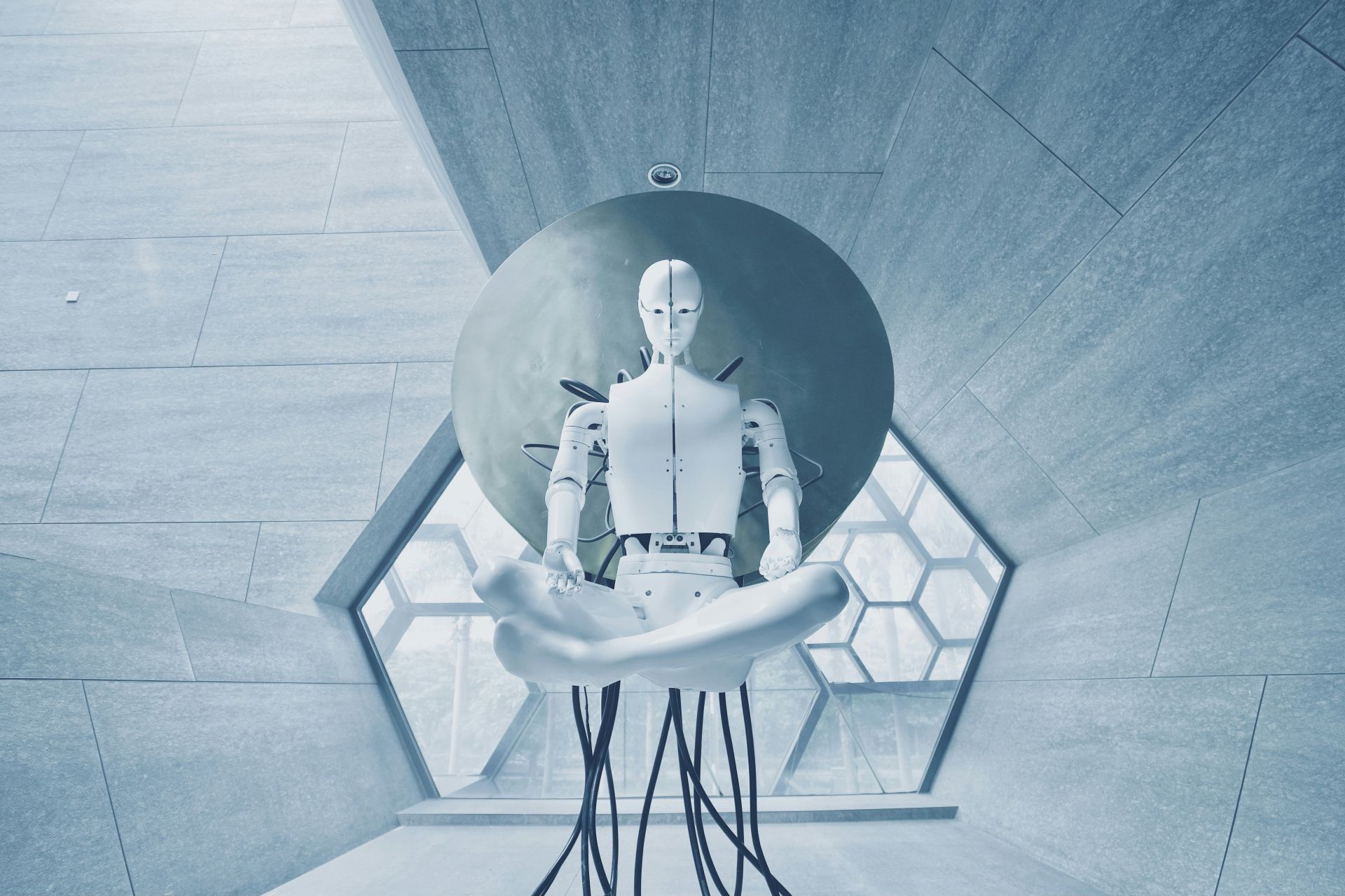We’ve all heard the talk about how artificial intelligence (AI) is going to change the world—or take over it, if you’re a fan of Terminator. AI programs are rapidly evolving daily, as the tools learn and improve themselves. The technology has already found its foothold in various industries, for instance, entertainment, analytics, and art, however, this isn’t without backlash.
AI programs for commercial use have been labelled as controversial and infringing, especially in creative industries. This is because most generative AI, such as Midjourney, ‘learn’ from other people’s assets and pre-existing art, which calls into question ownership, credit, and compensation.
The entertainment and creative industries aren’t the only ones being disrupted by AI. The technology has found potential use in the marketing industry, from statistics to copywriting, and is causing a storm. AI can be used to streamline marketing strategies, improve efficiency, and analyse data.
While some companies are already implementing AI into their everyday tasks, others are sticking with humans for now. Artificial intelligence is undoubtedly a game changer for the marketing industry, as it can streamline processes and observe audience or industry trends better than the human eye—but the technology still needs to develop further before it is ready for a takeover.

What is artificial intelligence?
Artificial intelligence is where a machine or software simulates human intelligence. These AI can then be used to perform tasks that normally require human-level intelligence, such as reading, writing, speech, and visual recognition.
The field of artificial intelligence grew popular with the dawn of computers and sci-fi media. Fantasy is quickly becoming a reality as more companies and computer science-related studies are shifting their focus to artificial intelligence and developing them.
Understanding machine learning & deep learning
Before we delve into the different ways artificial intelligence is revolutionising the marketing industry, it’s important to understand the technology behind it. When you look up artificial intelligence, two common terms you’ll see are machine learning and deep learning.
Machine learning is one of the most popular approaches to artificial intelligence. It is a type of AI that learns from being ‘fed’ specific data from humans and analyses this data with an algorithm. Compared to deep learning AI, it requires more ‘human’ intervention during the learning process.
Deep learning uses complex algorithms that are modelled off the human brain and is a specialised subset of machine learning. Deep learning allows artificial intelligence to learn and grow like a human would, as well as analyse data with a logical structure similar to a human.
It’s important to understand the difference because artificial intelligence that use basic machine learning or the advanced deep learning have different use cases. For instance, when it comes to predicting customer behaviour, having artificial intelligence developed with deep learning technology can provide more accurate results as it ‘thinks’ like a human would.

Automating content creation
When it comes to the marketing industry, it’s all about content. Now don’t get me wrong, human content produced by an SEO agency in Melbourne or talented freelance writing professionals will always have a place. But we’re already seeing massive media companies adopt artificial intelligence for writing content, for example, The Washington Post. Their ‘home-grown’ artificial intelligence, Heliograf, wrote more than 850 published articles for the news outlet.
Not only can artificial intelligence help with automating the creation of content, it can also speed up content curation, and delivery. Companies will be able to create and deliver content quicker using artificial intelligence, which also allows them to cut costs with paying for human services.
Artificial intelligence used for content creation such as articles or copywriting is referred to as NLG (natural language generation). It can generate unique and natural-sounding text for marketing companies based on parameters such as topic, word count, and data to be used.
Customer service bots
Artificial intelligence can be used for automating customer service, monitoring reviews and feedback, as well as providing support services. Statistics show that 6 in 10 consumers have interacted with an AI chatbot in the past six months, which is 24% higher than people who picked up the phone for human support services, according to a survey conducted by Cyara.
From a user standpoint, the biggest benefits of chatbots are the 24/7 support, speed, and autonomy. There’s no need to wait for business hours, and the response time is better than a human. When looking at it from the perspective of a company, it also saves time and money on paying for a human support team, and it increases customer satisfaction as they can receive support whenever they need it.
Even looking beyond the marketing industry, many Australian companies have adopted AI-powered chatbots from the communications industry to healthcare and education. Some great examples include Optus for customer support and Healthdirect Australia’s chatbot that helps patients understand symptoms and seek professional guidance.
Predicting customer behavior
When it comes to marketing, understanding your audience is the difference between a successful or failure of a campaign. Unlike humans, artificial intelligence can work 24/7 with real-time data and statistics to analyse any industry trends and changes in consumer habits to provide accurate customer behaviour predictions on a level a human can’t.
Technology and artificial intelligence have evolved to a point where it can rapidly consume and analyse data at a rate a human can’t. A great example of this for example is with Facebook and Google Ads. The companies use technology to not only go through the data of millions of users a day but also use that data to tailor advertisements and market products personally to you.
Analyzing massive amounts of data
In this digital age, nothing is more valuable and important than data—but what do you do when you have it? Data is essential for every industry and business to learn more about your potential consumers, current audience, and what customers want.
The biggest issue right now is that processing all of that data without the aid of technology is time-consuming and inefficient. Artificial intelligence can streamline the process of providing accurate reports and predictions by processing large amounts of data in real time. It’s quickly becoming a game changer and shaking up the marketing industry due to its versatility and providing insight into marketing trends.
Fraud detection
AI is currently changing the game in fraud detection, which extends to the marketing industry. AI-powered fraud detection is stronger than typical fraud detection strategies, and can be used to help stop people from signing up for campaigns using fake email addresses, prevent false e-commerce transactions, and help both businesses and customers.
Campaigns, pitches, and mock-ups
The time of having to spend hours or days creating campaigns or pitching ideas is over—it’s possible to have mock-ups for designs and copy within an hour using generative AI. A great example of this is ChatGPT, it can easily write out all the text for marketing campaigns with just simple prompts from the user, inputting information about the product, target audience, and word count.
Artificial intelligence is going to be a force to be reckoned with, and it’s already disrupting the marketing industry. It is a versatile tool that can be used for anything from generating copy and designs to analyzing user data. While AI tools and programs are still in its early stages, it’s still seeing use throughout the industry, and it’s sure to grow in the coming years.
Featured image credit: Lukas Blazek/Unsplash





